It was just about a year ago that former state Rep. Luis Arroyo was indicted for allegedly attempting to bribe a state senator, Terry Link. It was just last month that Link resigned his Senate seat after also giving up his spot on the Legislative Ethics Commission.
That commission, made up of eight lawmakers, still has the power to stop or bury reports of wrongdoing by its fellow members of the Illinois General Assembly or others who work in the legislative branch of our state government.
Isn’t that ridiculous? There ought to be no controversy whatsoever about changing state law to take away the commission’s power over legislative investigations. The legislative inspector general ought to be fully empowered to be independent, to investigate claims of wrongdoing without receiving permission or approval from anyone, and to subpoena whatever is needed to fully conduct investigations of the state’s legislative branch.
And yet, a year after Arroyo’s arrest, we still have nothing in the way of recommendations from the Joint Commission on Ethics & Lobbying Reform that was created after his arrest. No recommendations about the legislative inspector general, about lobbying, about ethics, about conflicts of interest or financial disclosures. Nothing.
This, despite the fact that state Sen. Tom Cullerton also has been indicted and is fighting charges that he embezzled almost $275,000 in salary and benefits for doing little to no work for the Teamsters. This, despite the fact that state Sen. Martin Sandoval pleaded guilty in January to taking $250,000 in bribes involving a red-light-camera company. This, despite his resignation and Link’s and Arroyo’s. This, despite Commonwealth Edison officials admitting this summer that the utility conglomerate spent 10 years working in nefarious ways to win favor with House Speaker Michael Madigan.
What more do we need to see? What more will it take?
On Feb. 6, the current and former legislative inspectors general testified before the Joint Commission on Ethics & Lobbying Reform. Former acting Legislative Inspector General Julie Porter testified that the lawmaker-filled Legislative Ethics Commission refused to publish one of her reports finding wrongdoing on the part of a lawmaker or legislative employee.
A second such report also was buried. A third report was so egregious that Porter took the step of asking the state attorney general to file a formal complaint with the Legislative Ethics Commission. The report detailing this probe was listed as “pending” for several months, and then the commission simply listed that it “did not agree to publish” another report of wrongdoing. Porter testified she believes that was the case she referred to the attorney general.
“My report and the attorney general’s complaint should not be secret,” Porter testified. “They remain so only because the Legislative Ethics Commission squashed them so that the public could not see what the supposedly independent inspector general determined to be wrongdoing by a sitting legislator.”
Who was it? Perhaps Porter had investigated Link or one of the others? Or perhaps this sitting legislator remains in office? We might never know.
“The fox is guarding the henhouse,” Porter said back in February. “And the problems are not just hypothetical; over the past year, the Legislative Ethics Commission has used its authority under this statute to undermine the legislative inspector general’s work in critical ways.”
Both the current legislative inspector general, Carol Pope, and another former legislative inspector general, Tom Homer, echoed her alarm that day.
Porter’s testimony came months before federal prosecutors announced the ComEd deferred prosecution agreement.
It was clear long, long ago that we need a fully independent and empowered legislative inspector general and much, much more. How can anyone say otherwise?
But the Joint Commission on Ethics & Lobbying Reform hasn’t met since early March. Its recommendations were due at the end of March. The short fall legislative session starts Nov. 17.
When exactly will it be time to declare that enough is enough?
This column was originally published by Crain’s Chicago Business.
